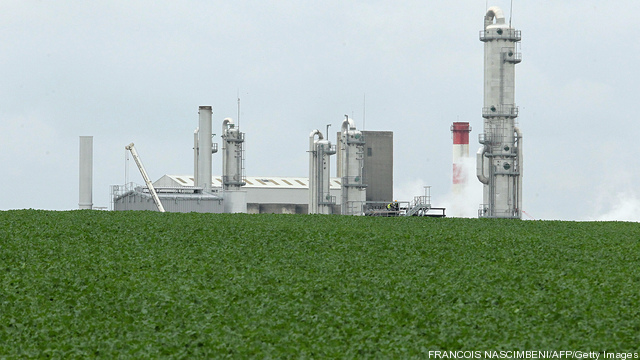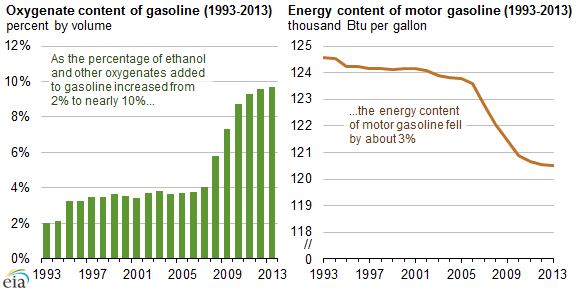The World Resources Institute, a highly respected environmental think tank issued a new report this week arguing against the widespread use of biofuels. While acknowledging that waste biomass, such as food waste or urban tree trimmings can be efficiently harvested for fuel, the overall quantities would be relatively limited. Biomass crops on the other… Keep reading →
Energy Density
Energy Quote of the Day: ‘Do not Grow Food or Grass Crops for Ethanol or Diesel or Cut Down Trees for Electricity’
By Edward DodgeSign up and get Breaking Energy news in your inbox.
We will never sell or share your information without your consent. See our privacy policy.Energy News Roundup: Ethanol Decreased US Gasoline Energy Content, $50B Midstream Merger & Neutral Zone Oilfield Shut
By Jared AndersonAs the volume of ethanol blended into the US gasoline supply increased from 3% to 10% over the past two decades, the fuel’s energy density decreased by 3%, according to the EIA. In an interesting example of how energy/environmental issues are often characterized by tradeoffs, greater volumes of ethanol added to gasoline decreases air pollution… Keep reading →
We recently covered Manhattan Institute Senior Fellow Robert Bryce’s most recent book launch event, where he gave an upbeat and provocative synopsis of his latest work “Smaller Faster Lighter Denser Cheaper,” which praises technology’s virtues and all the positive things technological innovation has done for society. Bryce also goes head-to-head with climate activist Bill McKibben… Keep reading →
Robert Bryce – Senior Manhattan Institute Fellow – gave a vibrant talk yesterday in New York City at a gathering called to launch his latest book “Smaller Faster Lighter Denser Cheaper,” which he describes as a “rebuke to the catastrophists.” The premise is that technology and innovation are helping people live healthier, longer, more fulfilled… Keep reading →
Since the first motorcycle was built, the two wheel transportation device has had many sources of power, including the first steam powered machines. It was not until World War II that gas powered motorcycles became common place. Now the pentagon is developing a new military hybrid motorcycle that promises to be fast, powerful and silent. By creating… Keep reading →
MIT researchers have devised a membrane-free rechargeable battery prototype that could facilitate cheaper, large-scale energy storage and support widespread renewable energy use. On August 16, 2013, researchers at the Massachusetts Institute of Technology (MIT) unveiled a membrane-free rechargeable flow battery prototype capable of overcoming the major barriers of energy storage – cost and performance –… Keep reading →






